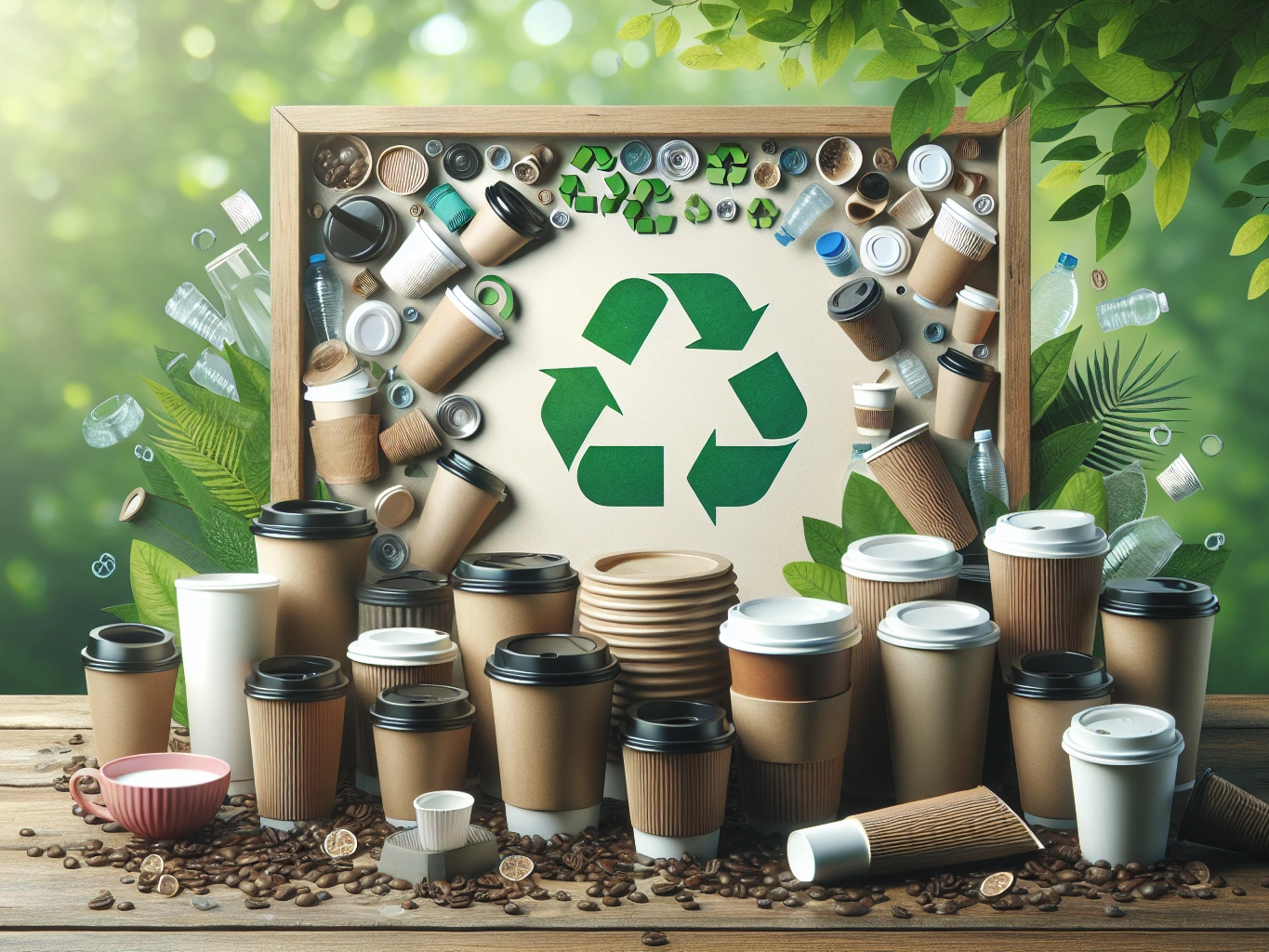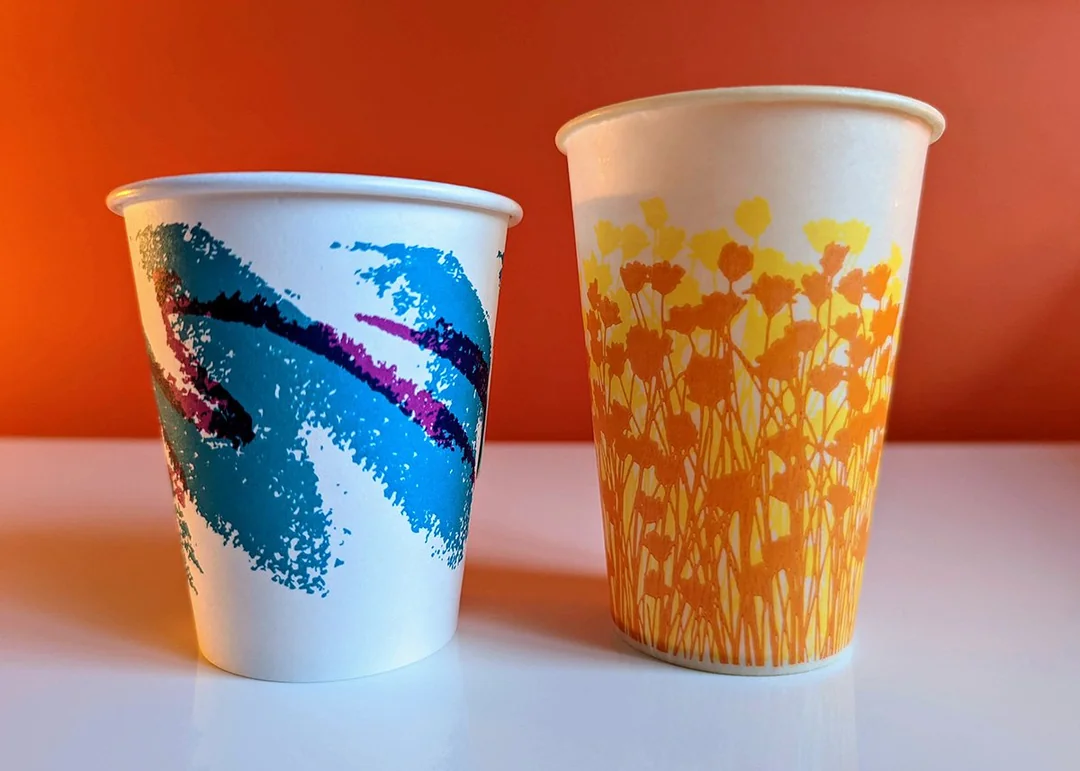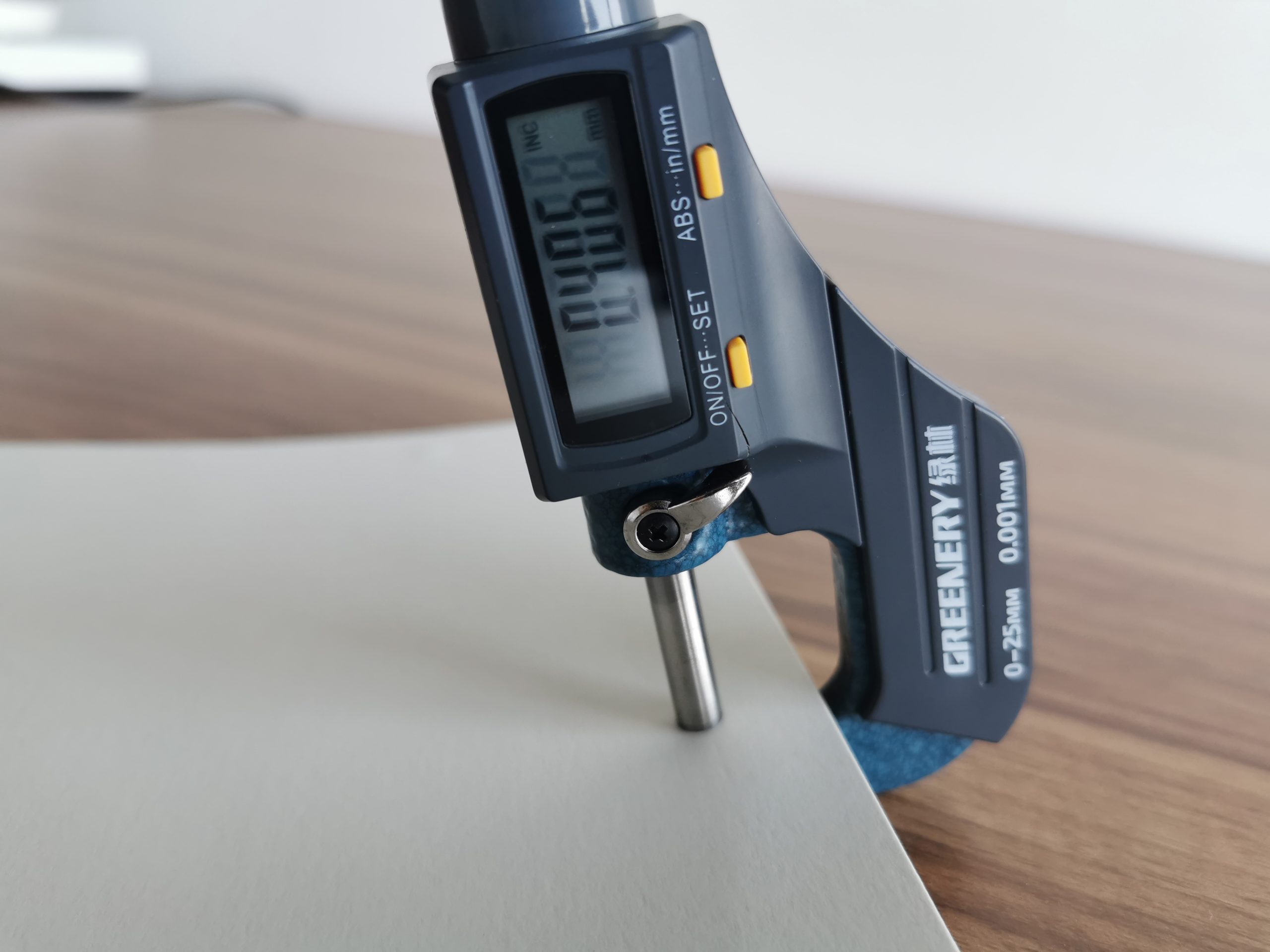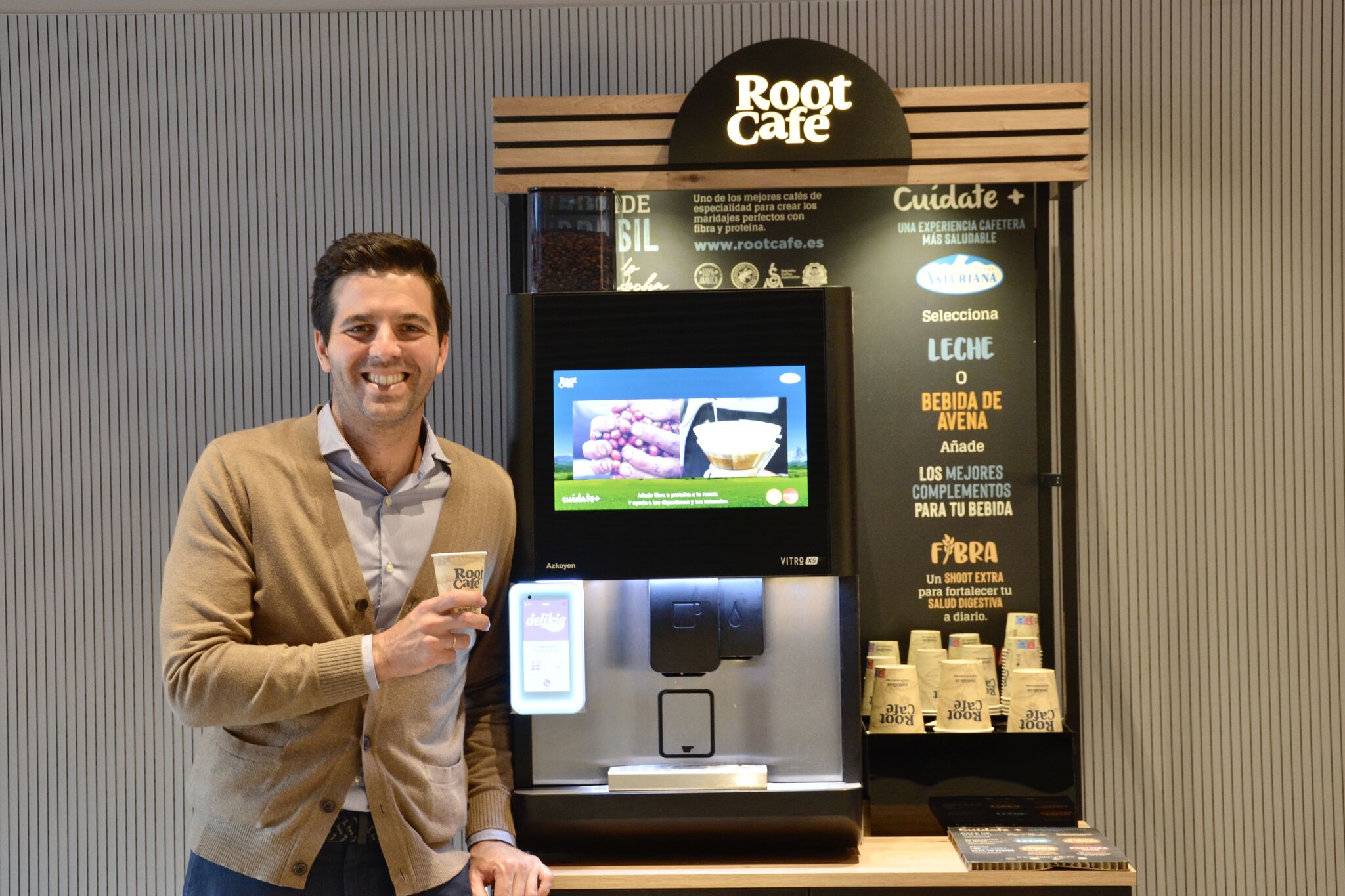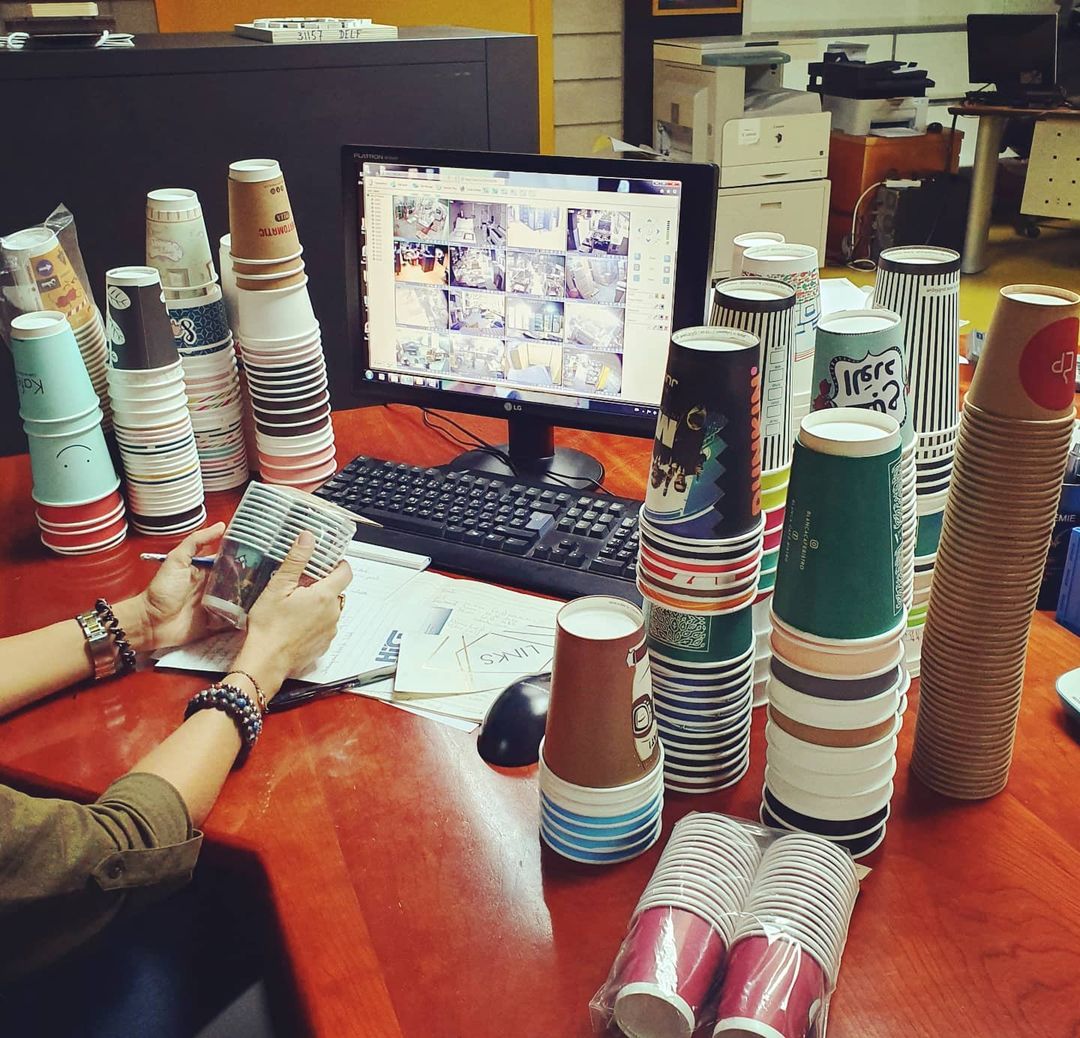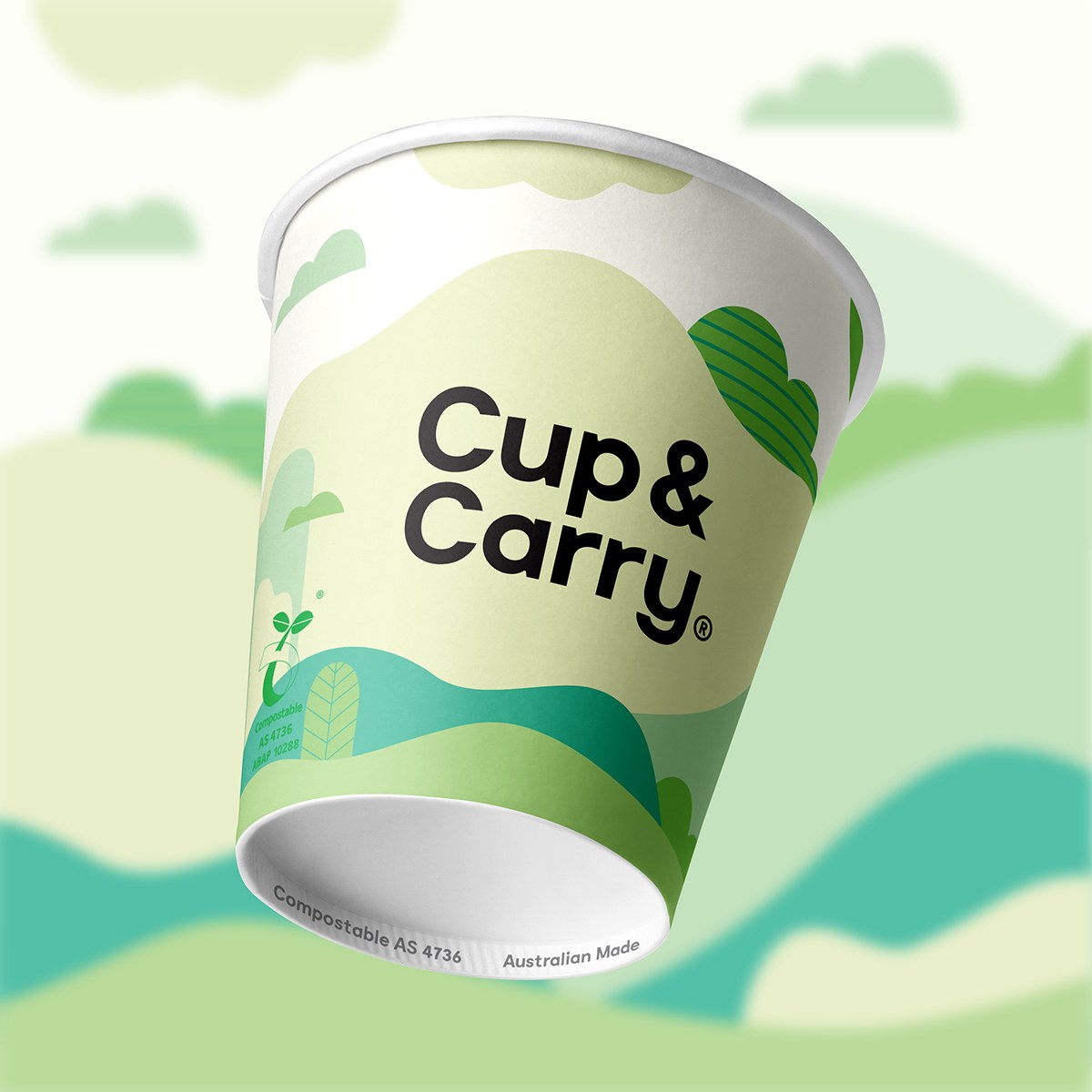In our daily haste, millions of us rely on a simple yet pervasive product: coffee cups. Yet, not all cups bear the same impact on our planet. Among these, recyclable coffee paper cups emerge as a beacon of sustainability, offering a glimmer of hope in our fight against environmental degradation. It’s essential for us to understand the significance of these recyclable alternatives, not just for their convenience but for their lesser environmental footprint. Our shift towards recyclable, and compostable options represents a crucial step in fostering a more sustainable future.
In this comprehensive guide, we delve into the challenges of recycling traditional paper cups, exploring why many of them end up in landfills despite our best intentions. We’ll also introduce you to alternative types of recyclable coffee paper cups that are designed with sustainability in mind. From assessing the environmental impact of non-recycled paper cups to exploring sustainable alternatives, we aim to provide a clear roadmap for individuals and businesses alike to make more informed decisions. By embracing recyclable and compostable solutions, we can collectively reduce our ecological footprint, making every cup of coffee a step towards a greener planet.
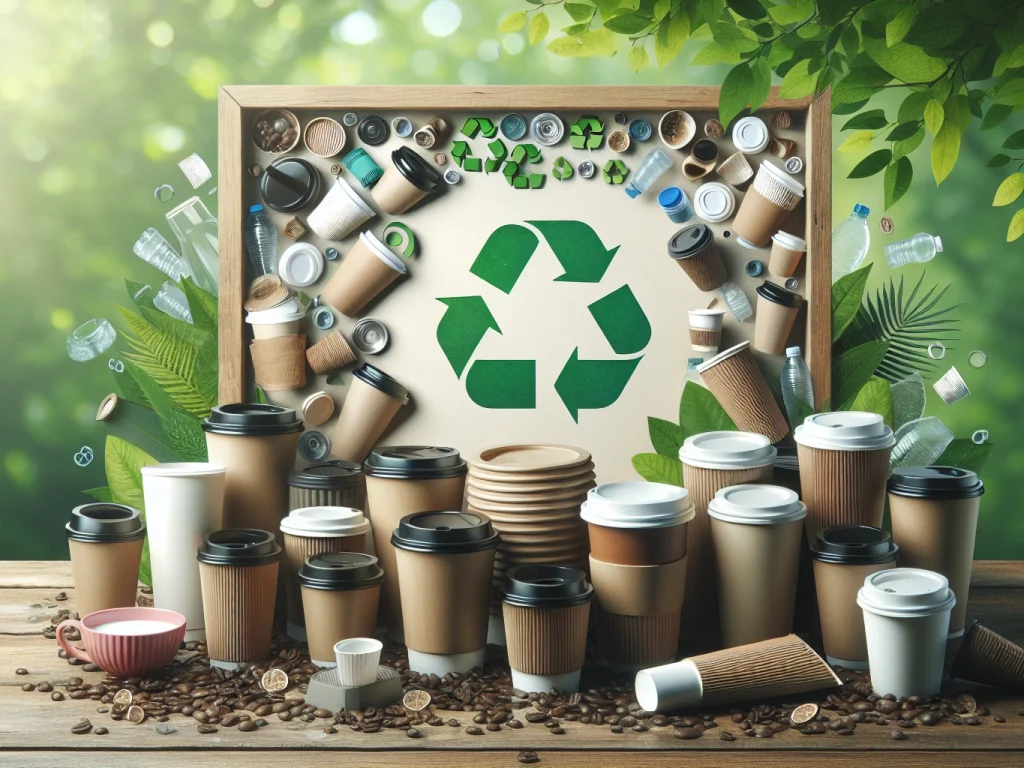
What Makes Paper Cups Difficult to Recycle?
Composition of Paper Cups
Most disposable paper cups consist of about 90 to 95% paper and the remaining 5% is typically polyethylene, a type of plastic. This plastic layer, although only a small portion of the cup, is critical as it provides the necessary insulation for hot beverages and creates a moisture barrier that prevents the paper from becoming soggy. Historically, paper cups had a wax coating and a clay base, but modern cups are predominantly lined with polyethylene or polylactic acid (PLA) to meet safety and quality standards.
Plastic and Wax Coatings
The inner layer of polyethylene not only keeps the liquid inside the cup but also complicates the recycling process. The challenge arises because this plastic is tightly bonded to the paper, making it difficult to separate during the recycling process. In some cases, cups are coated with wax, which presents similar recycling challenges. The presence of these materials means that the cups cannot be processed through standard paper recycling systems and are often directed to landfills.
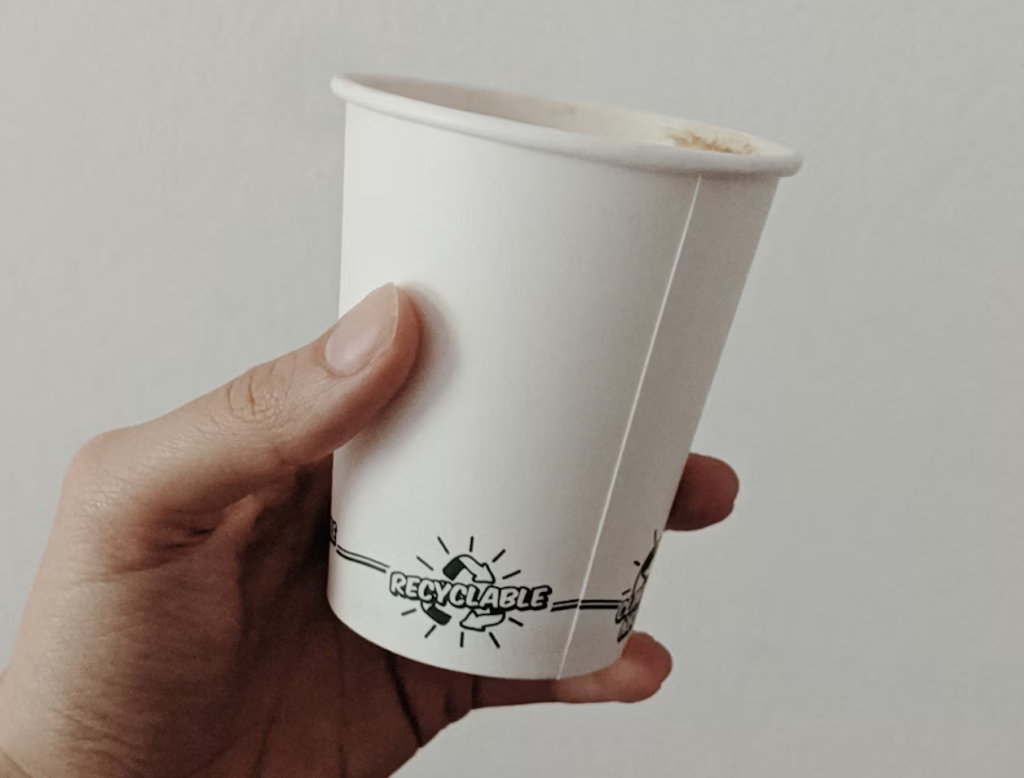
Existing Recycling Challenges
Recycling paper cups is not straightforward due to the integration of polyethylene in their structure. Paper recycling facilities are generally not equipped to handle the plastic component, which needs to be separated from the paper. Even in facilities that can process these cups, the cost and complexity of separating the plastic can be prohibitive. Furthermore, the plastic can degrade into small flakes that clog recycling machinery, leading to operational disruptions. This inefficiency is compounded by the widespread misconception that these cups are recyclable, due to the recycling symbol often found on them, which leads to contamination of the recycling stream.
Moreover, the environmental impact is significant because if not properly processed, these materials can take over 500 years to decompose, contributing to landfill mass and potential pollution.
Alternative Types of Recyclable Paper Cups
Water-Based Barrier Coating Cups
Water-based barrier coated paper cups, known for their environmental friendliness, are crafted using a coating made from natural minerals and polymers. This innovative approach not only prevents the paper from becoming soggy but also maintains the cup’s structural integrity, making it ideal for both hot and cold beverages. These cups are distinguished by their ability to be composted, significantly reducing waste and environmental impact. Additionally, the customization options available, such as printing logos and designs, make these cups an effective marketing tool for businesses aiming to boost brand visibility.
PLA-Lined Cups
PLA-lined cups offer a sustainable alternative, made from plant-based materials like corn starch or sugar cane, making them both renewable and biodegradable. These cups can be directly composted, adding to their environmental benefits. The production process for PLA is cost-efficient, using existing equipment for plastic manufacturing, which makes it a viable option for businesses. Moreover, the heat resistance of PLA cups makes them suitable for hot beverages, and their smooth, glossy finish enhances the consumer’s drinking experience.
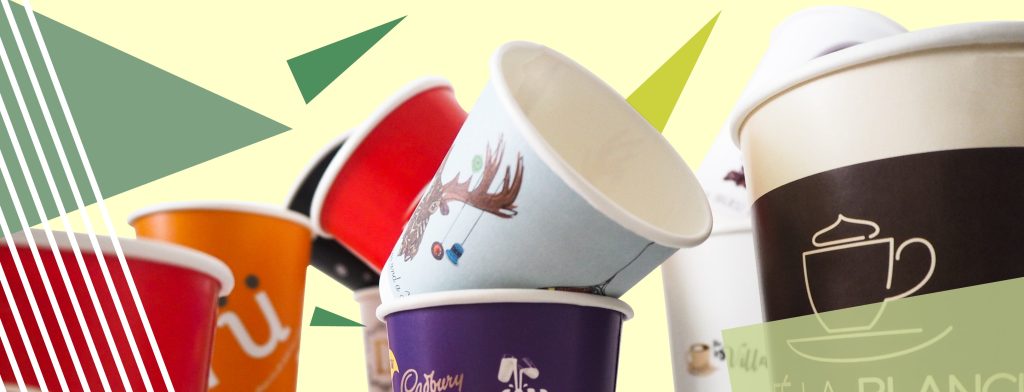
Local and Global Innovations
On a broader scale, innovative solutions like WestRock’s recyclable hot cup have set new standards in the industry. These cups are designed with a special coating that allows them to be recycled more efficiently, helping to keep high-quality fiber in circulation and reduce landfill waste. Locally, initiatives like the use of Sentinel™ cupstock, which incorporates a small percentage of bio-based PE derived from sugarcane, highlight efforts to reduce the carbon footprint associated with paper cup production.
These advancements in cup technology not only cater to consumer needs but also address the urgent environmental challenges posed by traditional disposable cups. By adopting these innovative, recyclable paper cup solutions, businesses can significantly lower their ecological impact while still providing the convenience of disposable cups.
Environmental Impact of Non-Recycled Paper Cups
Landfill and Carbon Footprint
Every year, billions of paper coffee cups are manufactured and most end up in landfills due to the difficulty in recycling them because of their plastic lining. The production of these cups not only requires significant energy but also contributes to global warming and pollution. It’s estimated that for every four paper cups produced, one pound of CO2 is emitted. When these cups are disposed of in landfills, they decompose anaerobically, releasing methane, a greenhouse gas much more potent than CO2, exacerbating the effects of global warming.
Microplastics in the Environment
The environmental hazards extend beyond just air pollution. The plastic linings of paper cups, primarily made from polyethylene, begin to degrade and release microplastics into the environment within minutes of use. These microplastics have been linked to a range of health issues, including reproductive harm and cancer. Research shows that drinking just three hot beverages a day from disposable cups can lead to ingestion of around 75,000 microplastic particles, posing significant health risks over time.
Comparing Recycling and Composting
Recycling paper cups is challenging due to their plastic content, which contaminates the recycling process. Most recycling programs are not equipped to handle plastic-coated paper materials, resulting in a mere fraction of these cups being recycled properly. On the other hand, composting, while a preferable option, is only effective if the cups are processed in industrial composting facilities that can handle the specific conditions required to break down the materials. However, the reality is that these facilities are scarce, and the conditions are not always met in typical landfill environments, leading to prolonged degradation times and continued environmental impact.
Exploring Sustainable Alternatives
Reusable Cups
We have seen a significant shift towards reusable cups as a sustainable alternative to single-use disposable coffee cups. Many people are now keeping a reusable cup in their car, bag, or at their desk, ensuring it’s always within arm’s reach when the coffee urge strikes. Popular choices for these cups include materials such as glass, ceramic, and insulated stainless steel, which not only maintain the temperature of the beverage but also come with sealable lids to prevent spills. Additionally, many cafés now support this initiative by offering discounts to customers who bring their own cups, further encouraging this practice.
Biodegradable and Compostable Cups
Biodegradable and compostable cups offer another layer of sustainable alternatives. These cups are primarily made from polylactic acid (PLA), a bioplastic derived from renewable resources like corn-based resin. PLA cups are designed to be processed in commercial composting facilities that meet specific conditions such as those defined by the EU standard EN13432. This ensures that the cups can break down effectively without contributing to landfill waste. It’s crucial, however, to ensure these cups are disposed of correctly, as they cannot be recycled in the standard paper and cardboard recycling streams.
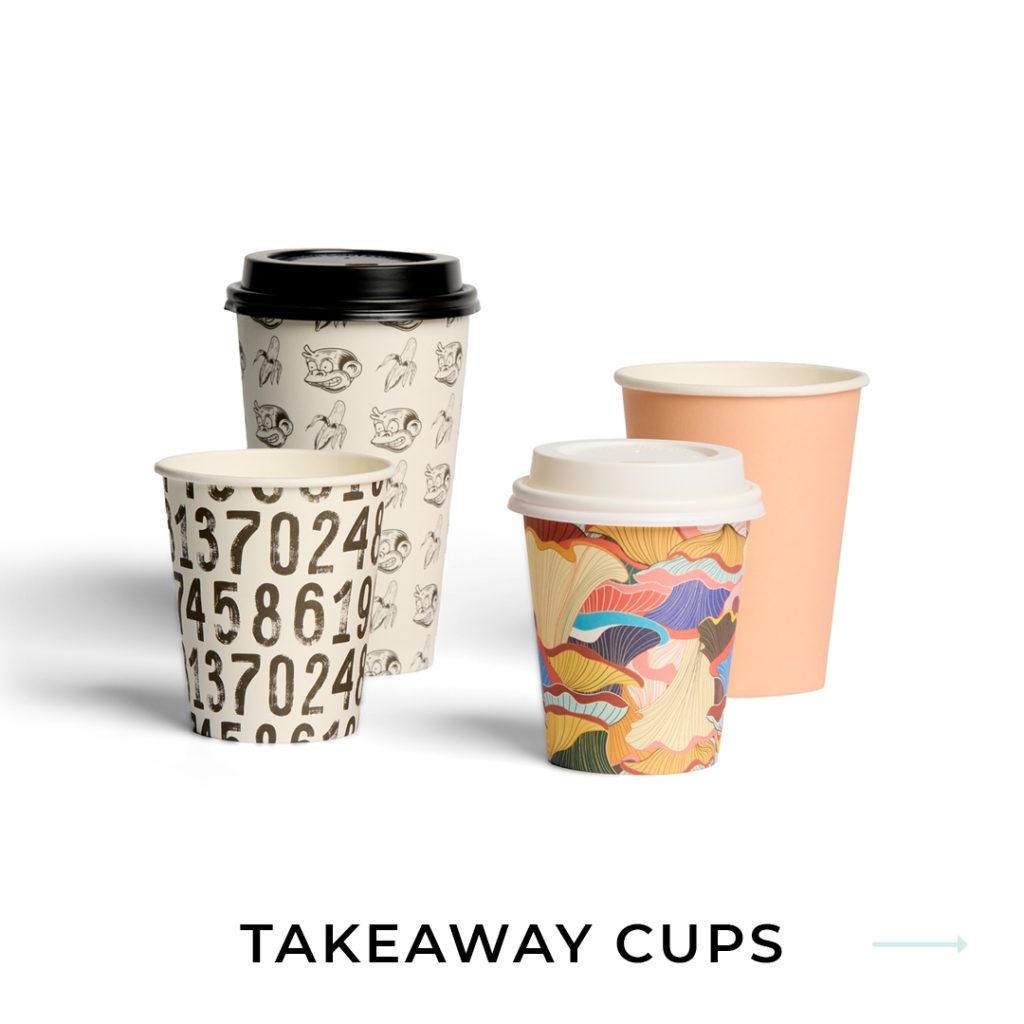
Consumer Responsibility and Choices
The role of consumer responsibility in driving the adoption of sustainable cup alternatives cannot be understated. By choosing reusable or compostable cups, consumers directly contribute to reducing the environmental impact associated with the production and disposal of single-use cups. Moreover, engaging in practices like using cups made from sustainable materials and participating in cup swap schemes at local cafés can significantly amplify the positive environmental effects. It’s also beneficial for consumers to support businesses that adopt sustainable practices, such as those part of the Responsible Cafes network, which promotes the use of environmentally friendly cups.
By adopting these sustainable alternatives and making conscious choices, we can significantly mitigate the environmental challenges posed by traditional disposable coffee cups.
Conclusion
As we traverse the landscape of sustainable practices, the transition to recyclable coffee paper cups stands out as a pivotal movement towards mitigating environmental degradation. The dialogue opened through exploring the complexities of recycling traditional paper cups, the inherent challenges posed by their plastic components, and the unveiled alternatives underscores our collective responsibility. This journey not only enlightens us about the impacts of our daily choices but also steers us towards embracing solutions that align with our environmental aspirations. By recognizing the significance of these sustainable alternatives, from water-based barrier coatings to PLA-lined and compostable options, we take a step closer to a more sustainable and eco-friendly future.
At the heart of this transition lies the action we take as individuals and communities. Choosing to adopt recyclable and compostable coffee paper cups reflects a commitment to reducing our ecological footprint. As we continue to advocate for such sustainable practices, it’s crucial to support businesses that offer these eco-conscious alternatives. If you need customized plastic-free paper cups, please reach us at Get Bio Pak Co., Ltd.. Through collaborative efforts and informed decisions, we can significantly diminish the adverse effects on our planet, ensuring a healthier environment for future generations.
FAQs
1. What impact do paper coffee cups have on the environment?
Paper coffee cups primarily end up in landfills where they release methane, a potent greenhouse gas that is more harmful than CO2. This contributes to the trapping of heat in the atmosphere and exacerbates global warming.
2. Why can’t paper coffee cups be recycled?
Paper coffee cups are generally not recyclable or compostable because they are not solely made of paper. They are designed to hold beverages without leaking or absorbing the liquid, which is achieved by coating the cups in plastic or wax for waterproofing.
3. What is the troubling truth about paper coffee cups?
The troubling truth about paper coffee cups is that despite appearing to be made of paper, their composition includes materials that prevent them from being recycled or composted, leading to significant environmental pollution.
4. Are coffee cups recyclable?
Coffee cups are typically not accepted in standard household recycling schemes due to their composite materials. However, some coffee shops do accept them for recycling. To reduce waste, consumers can also bring their own reusable cups to coffee shops, often receiving discounts for doing so.

